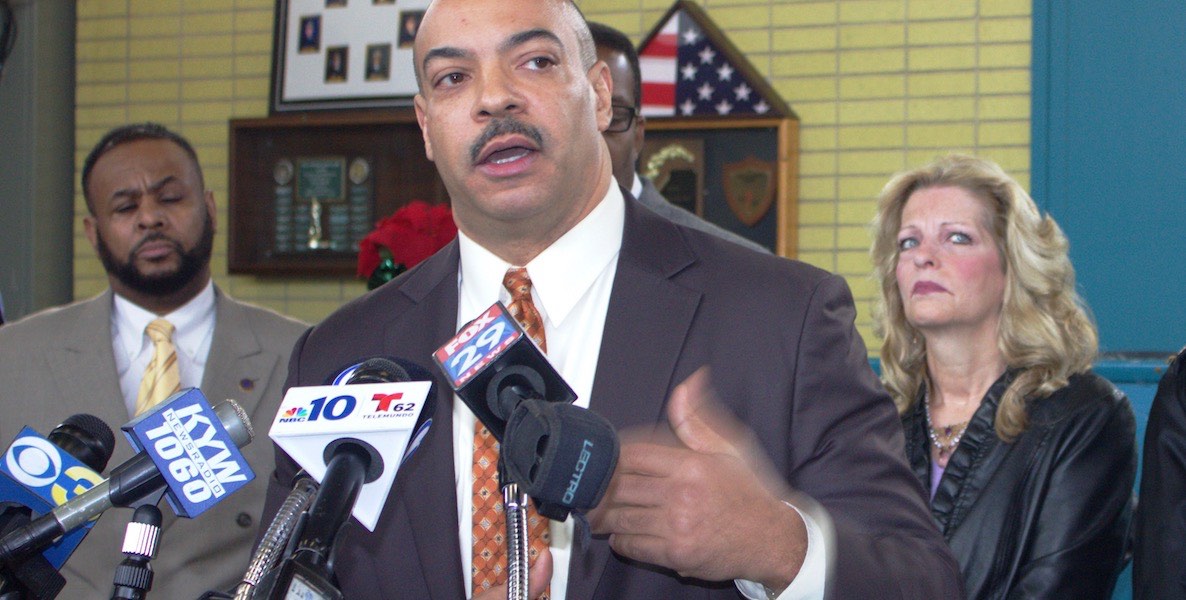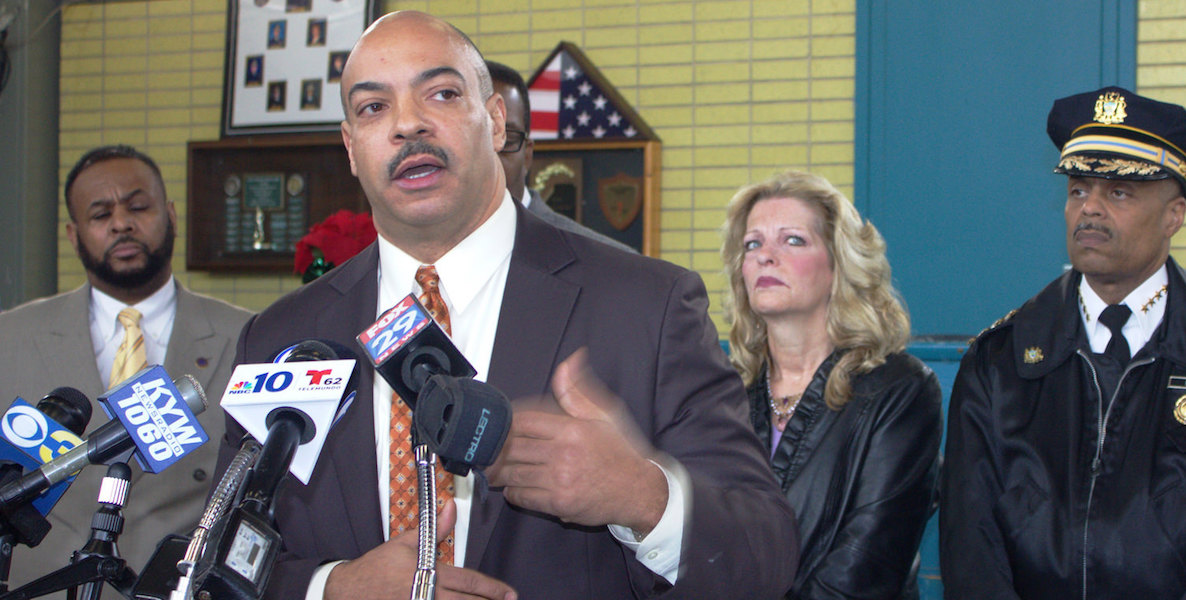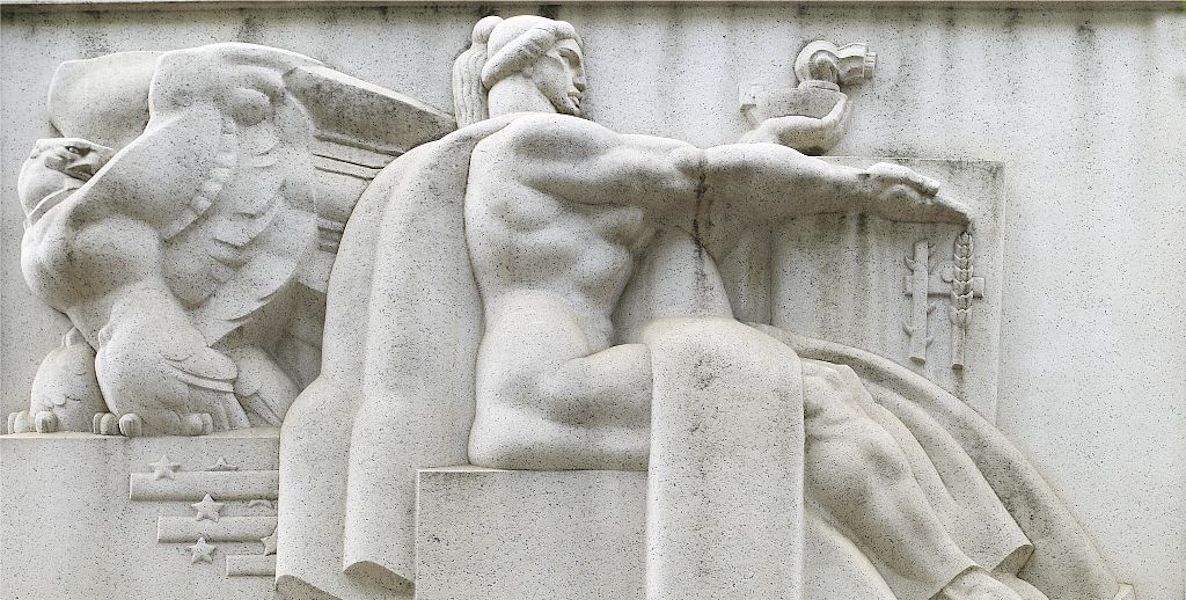The last thing Philly needed right now was a shadow election.

Yet, that’s what we got: an anti-transparent, somewhat anti-democratic and shadowy process whereby a near Star Chamber of 88 Philadelphia city judges voted by secret ballot to select former prosecutor Kelley Hodge as replacement interim District Attorney. It was a week where the reality of that process finally set in to quite a few Philadelphians still jarring from the indictment, guilty plea and jailing of disgraced former DA Seth Williams.
For the most part, Philly slept on this episode. It wasn’t really at the forefront of the public’s mind that a hastily convened and relatively unknown “Board of Judges” was setting about the business of electing a city prosecutor, a process normally left to voters. That didn’t become apparent until Philadelphia NAACP President Minister Rodney Muhammad and others lit up over the return of former DA Lynne Abraham as an interim DA applicant—among another 13 also throwing their names into the top hat judges would throw ballots into.
The fear was palpable: that the process was being used to re-introduce Abraham’s legendary tough-on-crime, send-them-to-death-row model that critics charge singled out black Philadelphia. At the top of selection week, Muhammad and others were holding a presser calling out Abraham and calling out the process. Muhammad was none too pleased about an Abraham comeback while on Reality Check. But as much noise as there was over Abraham, there wasn’t enough noise over exactly what this process entailed and why it was being instituted in the first place.
What is this and why was it necessary?
Even when Reality Check talked to Court of Common Pleas President Judge Sheila Woods-Skipper, the sense was that she really didn’t want to discuss it. Every question probing into the process was checked by an increasingly evasive answer as if there wasn’t a right to ask at all.
It was emblematic, once again, of cronyistic, cliquish Philly, a place where resident expectations, dreams and goals were constantly swindled and dashed by backroom deals. Going to the Philadelphia courts homepage, one couldn’t find any prominently placed primer or tutorial on the matter (maybe a heads up like “hey, Philly, we’re about to hire a 5-month DA for you”). There was no effort put into, at the very least, educating residents on one of the more impactful policy decisions supposedly made on their behalf. And that, bluntly, sucks considering what Philly citizens go through in routinely dealing with a corrupt local governing class.
In the meantime, the Inquirer’s Chris Brennan—a Reality Check Pressing Matters Local edition analyst from time to time—did offer a glimpse into it.
Even when Reality Check talked to Court of Common Pleas President Judge Sheila Woods-Skipper the day of Williams’ guilty plea, the sense was that she really didn’t want to discuss it. Every question probing into the process was checked by an increasingly evasive answer as if there wasn’t a right to ask at all. Near the end, the President Judge was impatient: “Are there any more questions because I have to go soon?”
After jailing its once promising political rising star and top prosecutor, Philly needs patience from public officials, as well as an open willingness to share information on the next stage. It was unclear, to many listeners, why an interim selection process was even moving forward when former Williams’ chief of staff Kathleen Martin had already been there holding down the DA fort —and quite adequately. It wasn’t like she’d been scarred by the Williams scandal, and there was citywide consensus she was keeping the prosecutorial trains running on time.
So, what possessed the Board of Judges to abruptly trigger an interim election? There are some who say it was time to move on from the Williams regime. Martin was Williams’ chief of staff, general counsel and chief integrity officer. Her husband, Robert Levant, represented Tyron Ali, a lobbyist at the heart of the porngate scandal; his firm represented former state prosecutor and Williams darling Frank Fina in his defamation suit against Kathleen Kane and The Daily News.
It was emblematic of cronyistic, cliquish Philly, a place where resident expectations, dreams and goals were constantly swindled and dashed by backroom deals. There was no effort put into educating residents on one of the more impactful policy decisions supposedly made on their behalf. And that, bluntly, sucks.
But still the anti-democratic nature of this selection came off shady. “I don’t recall ever seeing anything like this before,” said a distressed economist Bernard Andersen, who felt compelled to just call in after an extended Reality Check host rant on the subject.
Leon Aristotle Williams, one of the interim DA candidates, suddenly called in afterwards to correct the historical record. “I don’t remember folks making this much commotion during the interim DA vote back in 1991, because that was the last time it happened,” said Williams. “And that’s how Lynne Abraham got the job.” Williams didn’t seem all that bothered by the closed room method by which the Board of Judges was selecting the interim DA—maybe his being an applicant had something to do with that.
Still, that wasn’t enough to calm suspicious listeners in the WURD audience. Reality Check calls this week were full of conspiracy theories about political forces unhappy with Democratic nominee Larry Krasner who found a new way to derail his candidacy or, in the event he wins, derail his tenure as elected DA. Is that what happened in the end? Who knows? But that’s what you get when you put 88 judges in a room, give them a secret ballot, and then see them go mum when asked questions.
That’s not democracy.
Charles D. Ellison is Executive Producer and Host of “Reality Check,” which airs Monday-Thursday, 4-7 p.m. on WURD Radio (96.1FM/900AM). Check out The Citizen’s weekly segment on his show every Tuesday at 6 p.m. Ellison is also Principal of B|E Strategy, the Washington Correspondent for The Philadelphia Tribune and Contributing Politics Editor to TheRoot.com. Catch him if you can @ellisonreport on Twitter.






